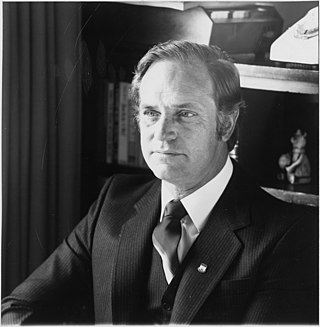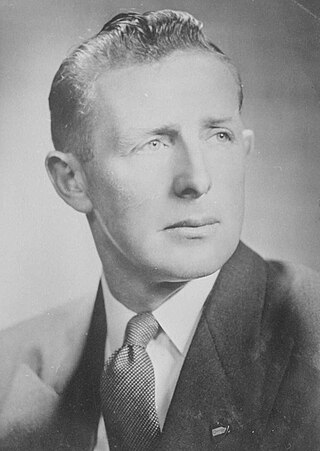Related Research Articles
The Alliance was a left-wing political party in New Zealand. It was formed at the end of 1991 by the linking of four smaller parties. The Alliance positioned itself as a democratic socialist alternative to the centre-left New Zealand Labour Party. It was influential throughout the 1990s, but suffered a major setback after its founder and leader, Jim Anderton, left the party in 2002, taking with him several of its members of parliament (MPs). After the remaining MPs lost their seats in the 2002 general election, some commentators predicted the demise of the party.

The New Zealand Social Credit Party was a political party that was New Zealand's third party from the 1950s to the 1980s. It won representation in the New Zealand House of Representatives, holding one seat at times between 1966 and 1981, and two seats from 1981 to 1987. While Social Credit once had significant support, particularly as a protest vote, it was disadvantaged by first-past-the-post voting as it had no geographically concentrated vote. Its most identifiable leaders were Vernon Cracknell (1963-70), who served just one term in parliament, and the household name Bruce Beetham, who rebuilt the party into a significant political force. At its zenith under Beetham in 1981, Social Credit achieved an unprecedented 20.7% of the vote.

The 1984 New Zealand general election was a nationwide vote to determine the composition of the 41st New Zealand Parliament. It marked the beginning of the Fourth Labour Government, with David Lange's Labour Party defeating the long-serving Prime Minister, Robert Muldoon, of the National Party. It was also the last election in which the Social Credit Party won seats as an independent entity. The election was also the only one in which the New Zealand Party, a protest party, played any substantial role.

The Values Party was a New Zealand political party. It is considered the world's first national-level environmentalist party, pre-dating the use of "Green" as a political label. It was established in May 1972 at Victoria University of Wellington. Its first leader was Tony Brunt, and Geoff Neill, the party's candidate in the Dunedin North electorate, became the Deputy Leader.

The 1990 New Zealand general election was held on 27 October to determine the composition of the 43rd New Zealand parliament. The governing Labour Party was defeated, ending its two terms in office. The National Party, led by Jim Bolger, won a landslide victory and formed the new government.

The 1975 New Zealand general election was held on 29 November to elect MPs to the 38th session of the New Zealand Parliament. It was the first general election in New Zealand where 18- to 20-year-olds and all permanent residents of New Zealand were eligible to vote, although only citizens were able to be elected.

Bruce Craig Beetham was an academic and politician from New Zealand, whose career spanned the 1970s and early 1980s.
John Wright is a former New Zealand politician. He was a member of parliament from 1996 to 2002, representing the Alliance. Before entering Parliament he owned the Port-a-Loo company.
The New Democratic Party of New Zealand was a small political party established in 1972. It was a splinter group from the better-known Social Credit Party.

Vernon Francis Cracknell was a New Zealand politician. He served as the Social Credit Party's third leader (1963–1970).

John Bernard O'Brien was a political candidate and party leader of Social Credit in New Zealand.

The East Coast Bays by-election of 1980 was a by-election during the 39th New Zealand Parliament in the East Coast Bays electorate. It resulted in an upset for the National Party, as their candidate and future leader Don Brash was unexpectedly beaten by Gary Knapp of the Social Credit Party.
The Onehunga by-election of 1980 was a by-election for the Onehunga electorate during the 39th New Zealand Parliament. It was prompted by the death of Frank Rogers, a Labour Party MP. It was held on 7 June 1980 and was won by Fred Gerbic, also of the Labour Party.

East Coast Bays is a New Zealand parliamentary electorate. It was first formed in 1972 and has existed apart from a break lasting two parliamentary terms. The electorate has been held by Erica Stanford of the National Party since the 2017 general election.
Neil Joseph Morrison was a New Zealand politician of the Social Credit Party.
Thomas de Vere Hunt, generally known as Pat Hunt, was a New Zealand politician of the National Party.

The Tamaki by-election 1992 was a by-election held in the Tāmaki electorate during the 43rd New Zealand Parliament, on 15 February 1992. It was caused by the resignation of incumbent MP Sir Robert Muldoon and was won by Clem Simich with a majority of 1,252. The by-election was also notable as the first contested by the recently formed Alliance Party, and for their success in coming second ahead of the Labour Party.
Thomas Kavanagh Weal was a New Zealand politician for the Social Credit Political League, the New Democratic Party and the short lived Christian Democrat party.
The Social Credit-NZ party was a political party in New Zealand which split from the New Zealand Democratic Party in 1988.
Christopher John Leitch was a New Zealand politician. He was the leader of the Social Credit Party from 2018 until his death in 2023.